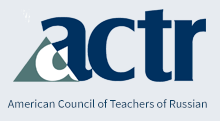Russian Language Journal
Keywords
language, research, learning, Russian, classroom
Abstract
A long-standing assumption in the field of second language acquisition research is that learning new vocabulary items in semantic groupings has a positive effect on acquisition and retention (Finkbeiner and Nicol 2003). This assumption is common among researchers and instructors of second languages, as it seems to fit intuitively with the most popular current communicative approaches to teaching. However, researchers have begun to question this assumption, as it has not been supported by empirical evidence (Altarriba and Mathis 1997; Finkbeiner and Nicol 2003; Papathanasiou 2009). Previous research is not conclusive on the topic due to differences in methodology and design. In this study this issue is explored in more detail and with a language not previously investigated: Russian.
Recommended Citation
White, K. (2015). The Effect of Teaching Vocabulary in Semantic Groups: A Study in the Russian Language Classroom. Russian Language Journal, 65(1). https://doi.org/10.70163/0036-0252.1103


